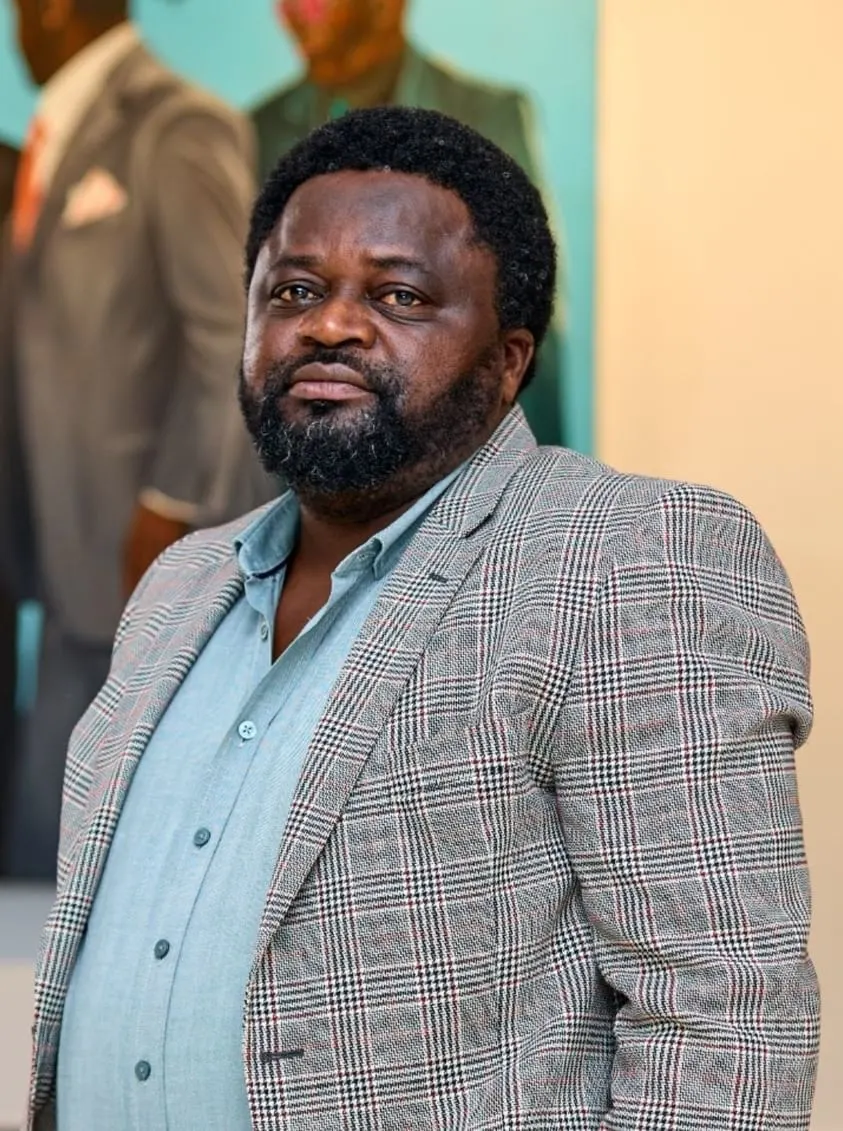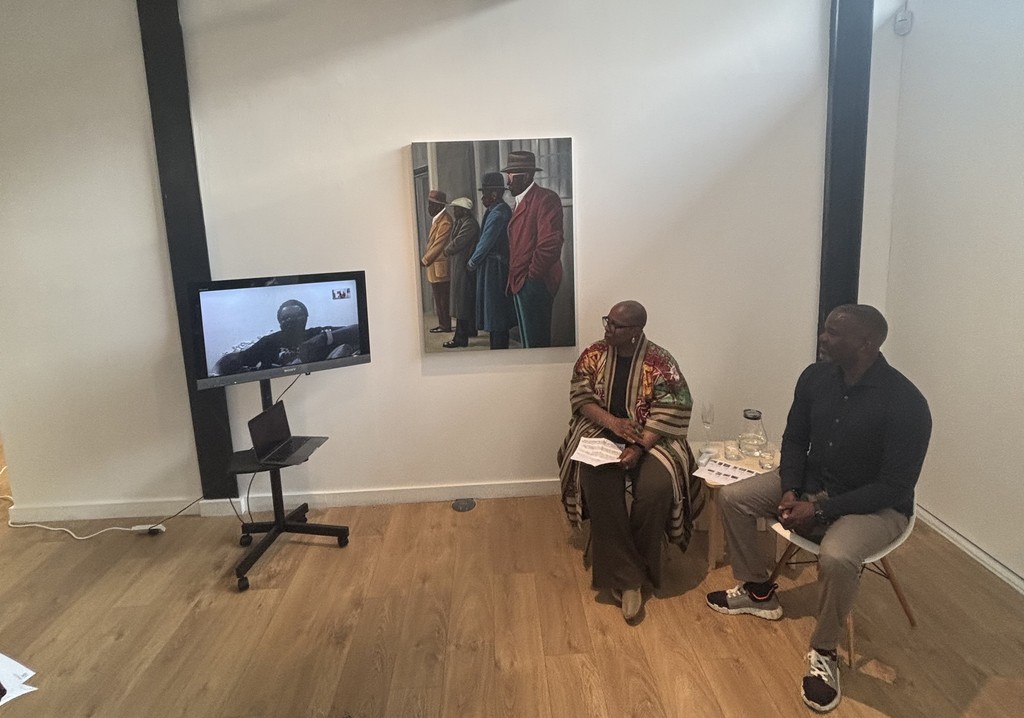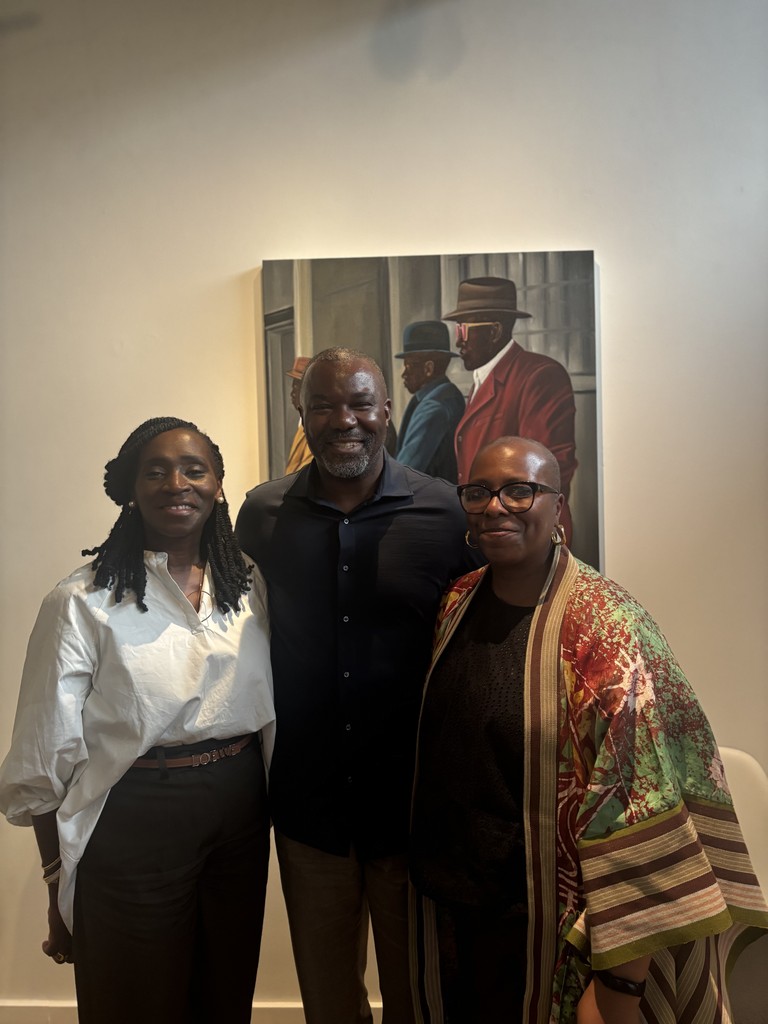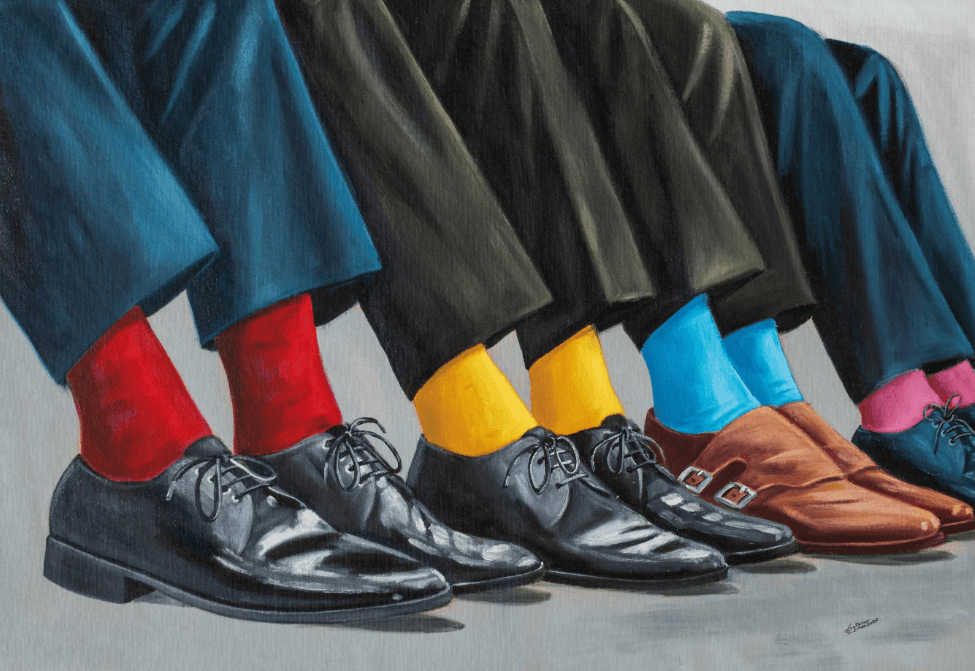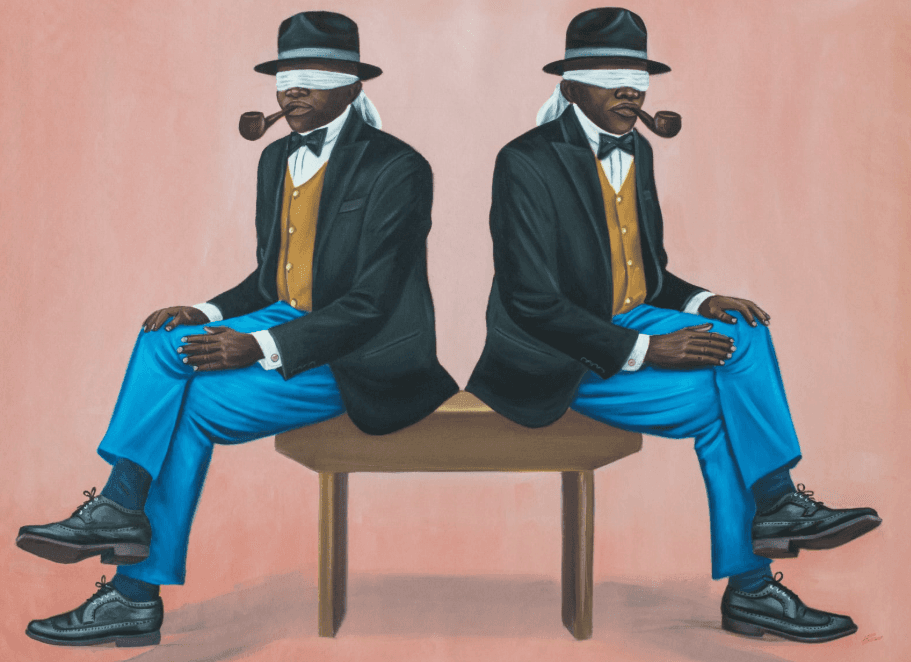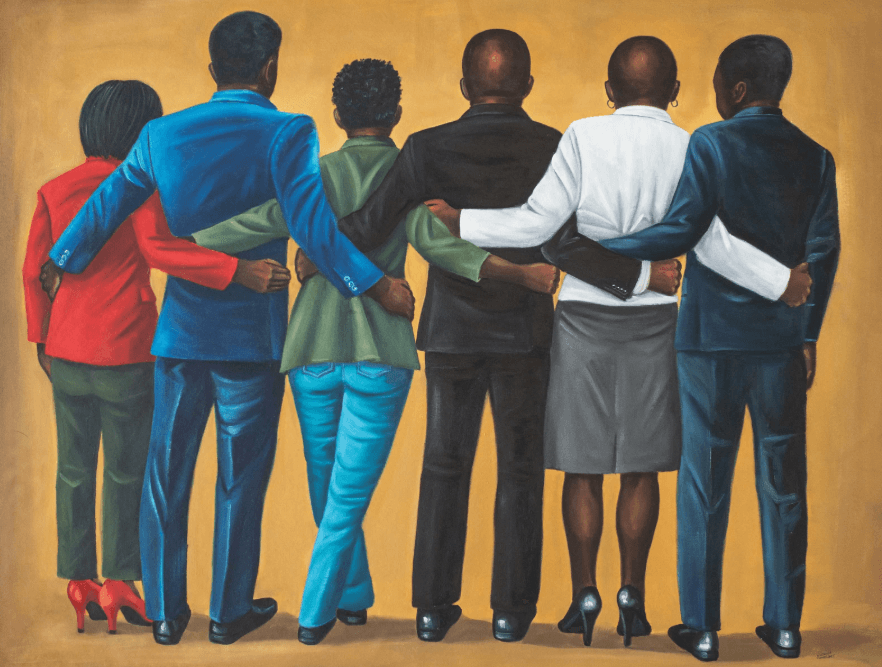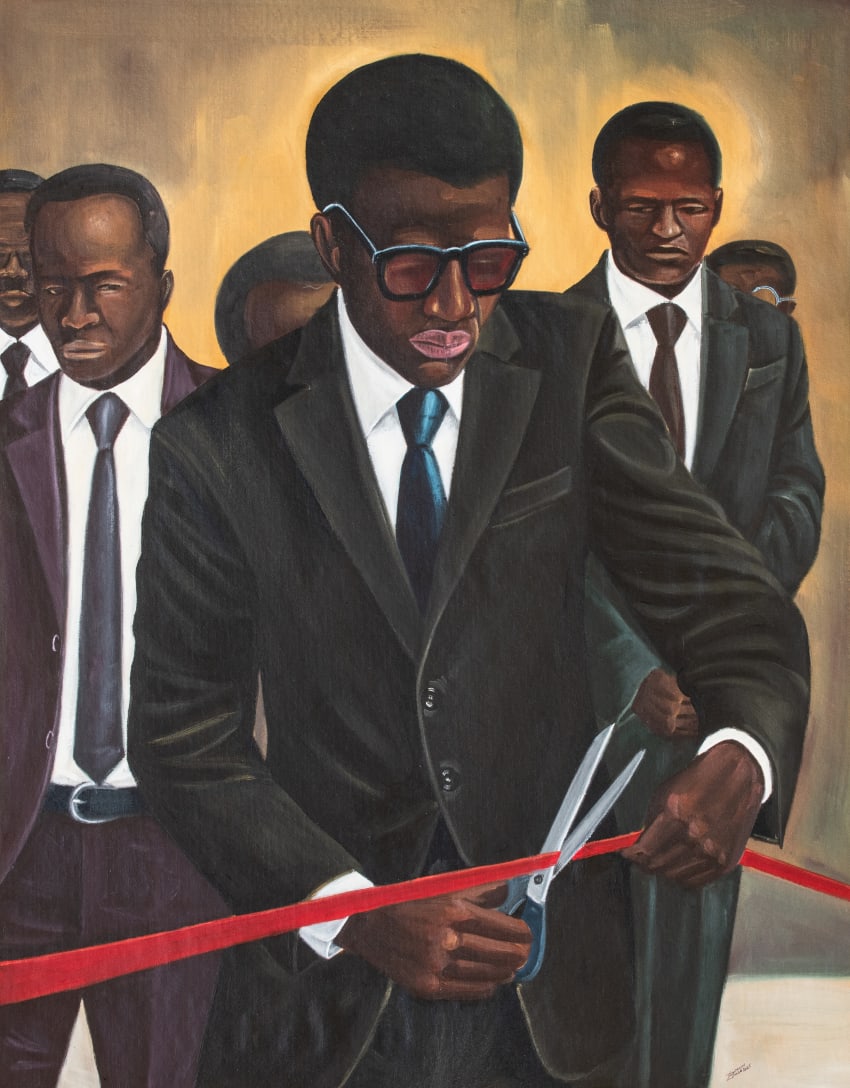Zemba Luzamba
In May, we had the joy to participate in a panel talk with Zemba Luzamba and Bola Mosuro at the Kristin Hjellegjerde Gallery, where we discussed Zemba's solo show, "Angalia Kwa Karibu" ("Look Close" in Swahili). The conversation covered his career, inspirations, and elements of Congolese culture. Our founder, Alain Defise, highlighted the Congolese art scene and the mission of the Defise Foundation to enhance the visibility of Congolese talent..
About Zemba''s exhibition
Luzamba invites us to explore meaning and emotion through gestures, clothing, and expressions, reflecting on themes of self-expression, community, and resistance. He captures moments from contemporary life within a cultural context, conveying a universal message: the human spirit embodies resilience, hope, and resourcefulness. Regardless of the time or circumstances, we will always find ways to carve our own paths and unite.
This exhibition pairs distinctive clothing with titles in Swahili, such as "Bakolo tirran," which describes individuals who have established authority in their neighbourhoods through long-term residency, despite not owning the land. Other titles, like "Mulambo" (black tax), highlight the financial burden that successful Black individuals often face when they feel obligated to support family members as a form of repayment for their upbringing. In "Mkimbizi" (asylum seeker), "Maisha Mapya" (new life), and "Mwanzo mpya" (new beginning), Luzamba captures hope through symbols, like an egg representing origin and wealth, and the cutting of a rope, which signifies ceremonial inauguration. In "Pamoja na furaha" (together with joy), men in matching black suits gather to drink whiskey, celebrating solidarity and community.
About Zemba
Zemba Luzamba (b. 1973) is an artist born and raised in the Democratic Republic of the Congo. He moved to South Africa to pursue his career as an artist, and this experience of migration has allowed him an intimate and sympathetic view of migrant communities, which has informed many of his works over the past 15 years. New York (USA). Luzamba’s work can be found in international private and public collections, including Fondation H Museum, Antananarivo, Madagascar; Jorge M. Pérez Collection, Miami, United States; Durban Art Gallery, South Africa, Irma Stern Museum, South Africa, Nandos Art Collection, UK/South Africa, Scalabrini House, Italy, Cultures Inc, US, Museum of Modern Art, Equatorial Guinea; UTA Artist Space Collection, USA; Kilbourn Collection, Cape Town, South Africa; The Spier Art Collection, Cape Town, South Africa; Zeitz MOCAA Collection, Cape Town, South Africa.
Instagram | Zemba Luzamba
About The Kristin Hjellegjerde Gallery
Since founding her eponymous gallery, Kristin Hjellegjerde has gained a reputation for exhibiting a diverse roster of international and emerging artists. The gallery now has an impressive global presence with two permanent spaces in London, one in Berlin and one in the heart of West Palm Beach’s art district. Kristin’s commitment to fostering cross-cultural dialogues has led to bold and impactful exhibitions both within her own gallery spaces and at Vestfossen Kunstlaboratorium where she curated ‘Kubatana’, the largest show dedicated to African artists ever staged in Norway.
Web | Kristin Hjellegjerde
